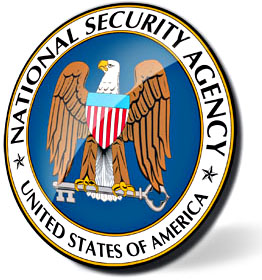 Eli Lake talks with Director of National Intelligence James Clapper about the NSA’s massive collection of phone records:
Eli Lake talks with Director of National Intelligence James Clapper about the NSA’s massive collection of phone records:
In an exclusive interview with The Daily Beast, Clapper said the problems facing the U.S. intelligence community over its collection of phone records could have been avoided. “I probably shouldn’t say this, but I will. Had we been transparent about this from the outset right after 9/11—which is the genesis of the 215 program—and said both to the American people and to their elected representatives, we need to cover this gap, we need to make sure this never happens to us again, so here is what we are going to set up, here is how it’s going to work, and why we have to do it, and here are the safeguards… We wouldn’t have had the problem we had,” Clapper said.
“What did us in here, what worked against us was this shocking revelation,” he said, referring to the first disclosures from Snowden. If the program had been publicly introduced in the wake of the 9/11 attacks, most Americans would probably have supported it. “I don’t think it would be of any greater concern to most Americans than fingerprints. Well people kind of accept that because they know about it. But had we been transparent about it and say here’s one more thing we have to do as citizens for the common good, just like we have to go to airports two hours early and take our shoes off, all the other things we do for the common good, this is one more thing.”
Two things. First, Clapper is quite possibly right. In the immediate aftermath of 9/11, Congress might well have approved DNA testing of everybody in the country if George Bush had proposed it. Hell, they approved the invasion of Iraq.
Second, though, Clapper is also wrong. I think he is, anyway. It wasn’t Snowden’s “shocking revelation” about the phone records program that did so much damage to the NSA. After all, we’ve known about that in fuzzy terms since 2005 and in very specific terms since Leslie Cauley reported it in 2006:
“It’s the largest database ever assembled in the world,” said one person, who, like the others who agreed to talk about the NSA’s activities, declined to be identified by name or affiliation. The agency’s goal is “to create a database of every call ever made” within the nation’s borders, this person added.
For the customers of these companies, it means that the government has detailed records of calls they made — across town or across the country — to family members, co-workers, business contacts and others.
This provoked a bit of controversy at the time, but it faded away pretty quickly. It’s true that Snowden provided documentary evidence that had been missing in the earlier reports, but he didn’t really change what we knew. The sad fact is that the mere knowledge that the NSA was collecting an enormous database of every call made in the United States simply didn’t bother people very much when it was first revealed.
No, what hurt the NSA was Snowden’s revelations about everything it was doing. If it had just been phone records, interest might have died out quickly, just as it did in 2006. But it was far more than that, and that’s what’s kept this alive. Clapper is kidding himself if he thinks otherwise.














